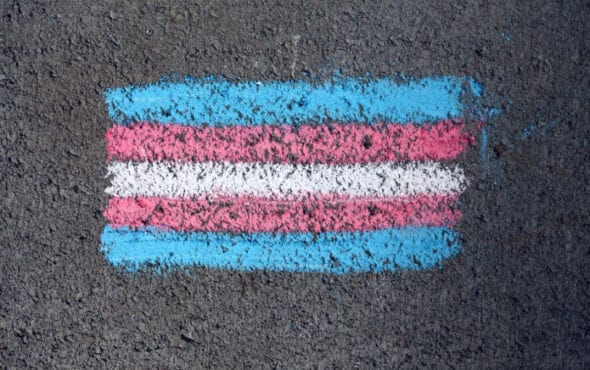
72% of young trans adults have faced verbal abuse over the past year.
According to research by the LGBTQ+ youth charity Just Like Us, trans people are the most likely people under the LGBTQ+ umbrella to face abuse.
The charity’s new report, called Positive Futures, will be published on 1 June.
The research, which looks at the experiences of young LGBTQ+ adults in the UK, from their wellbeing to time in school and at work, was carried out in January 2023 by Cibyl and surveyed 3,695 adults aged 18-25.
Just Like Us found that 61% of young LGBTQ+ adults have been subjected to verbal abuse. The number is higher for members of the trans and non-binary (70%) and asexual (68%) communities.
Despite not identifying at such, one in 10 (11%) of young non-LGBTQ+ adults have faced anti-LGBTQ+ abuse in the past year.
Physical abuse is similar for LGBTQ+ (25%) and non-LGBTQ+ (24%) people. Again, the number is higher for certain identities: lesbians (30%), gay men (31%) and asexual people (32%).
LGBTQ+ people were more likely than their non-LGBTQ+ counterparts to share that the physical abuse they’ve faced was sexual – 50% compared to 30%. The research shows that lesbians have faced the most sexual abuse (57%) and that asexual people were more likely to face domestic abuse (44%).
As for the area they live in, LGBTQ+ people were significantly less likely to feel safe than their non-LGBTQ+ peers – 32% compared to 43%. The numbers look similar for the workplace – 49% compared to 60%.
Amy Ashenden, interim CEO of Just Like Us, said: “It is devastating that the majority of trans young people have faced verbal abuse in the past year alone, and a sign of the often terrifyingly transphobic times we are living in here in the UK.
“The levels of abuse faced by LGBT+ young adults are completely unacceptable. It’s hard to believe that in 2023, LGBT+ young people are still being subjected to verbal abuse and violence, and that anti-LGBT+ attacks are so prevalent that they are even being directed at non-LGBT+ young people.
“It is absolutely vital that we start taking LGBT+ inclusion seriously, and that schools all over the UK give young people positive messages about LGBT+ identities, otherwise I fear that these figures will only increase.
“A great place to start for schools UK-wide is signing up for School Diversity Week, so that teachers can access our free and easy-to-use resources and let all of their pupils know that being LGBT+ is something to be celebrated and proud of.”
Those affected by the issues included in this research should contact Childline (0800 1111), Samaritans (116 123), or Switchboard (0800 0119 100).



